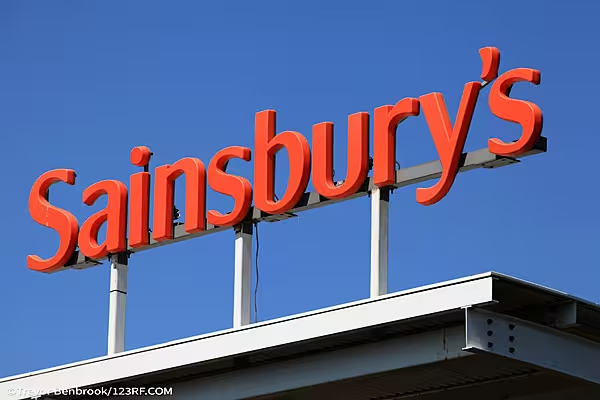British supermarket group Sainsbury's has reported a 4% fall in underlying sales in its first quarter, driven by weakness in general merchandise as cash-strapped consumers held back on discretionary spending.
Grocery sales fell 2.4% over the 16 weeks to June 25, while general merchandise sales fell 11.2%. Grocery sales were 8.7% ahead of pre-pandemic sales, the group noted.
Chief executive Simon Roberts said Sainsbury's understood "how hard it was for millions of households" right now and it was doing everything it could to keep prices low.
The retailer said that it planned to invest £500 million over the two years to March 2023, in order to keep prices low, a measure that would be funded by cost savings.
Reducing Costs
"We’re working hard to reduce costs right across the business so that we can keep investing in these areas that customers care most about," he said. "The progress we are making on improving value, quality, innovation and service is reflected in our improved grocery volume market share.
The group also anticipates that the cost of living crisis will likely get worse before it gets better, with Roberts adding, "The pressure on household budgets will only intensify over the remainder of the year and I am very clear that doing the right thing for our customers and colleagues will remain at the very top of our agenda."
Sainsbury's, Britain's second biggest supermarket after Tesco, said it still expected its underlying pretax profit for the year to be between £630 million (€732 million) and £690 million (€801 million)
The company also said its chief financial officer Kevin O'Byrne would retire in March 2023 and would be succeeded by commercial and retail finance director Blathnaid Bergin.
Read More: UK Shoppers Crack Down On Waste Amid Cost Of Living Crisis: Sainsbury's
News by Reuters, edited by ESM – your source for the latest retail news. Click subscribe to sign up to ESM: European Supermarket Magazine.











